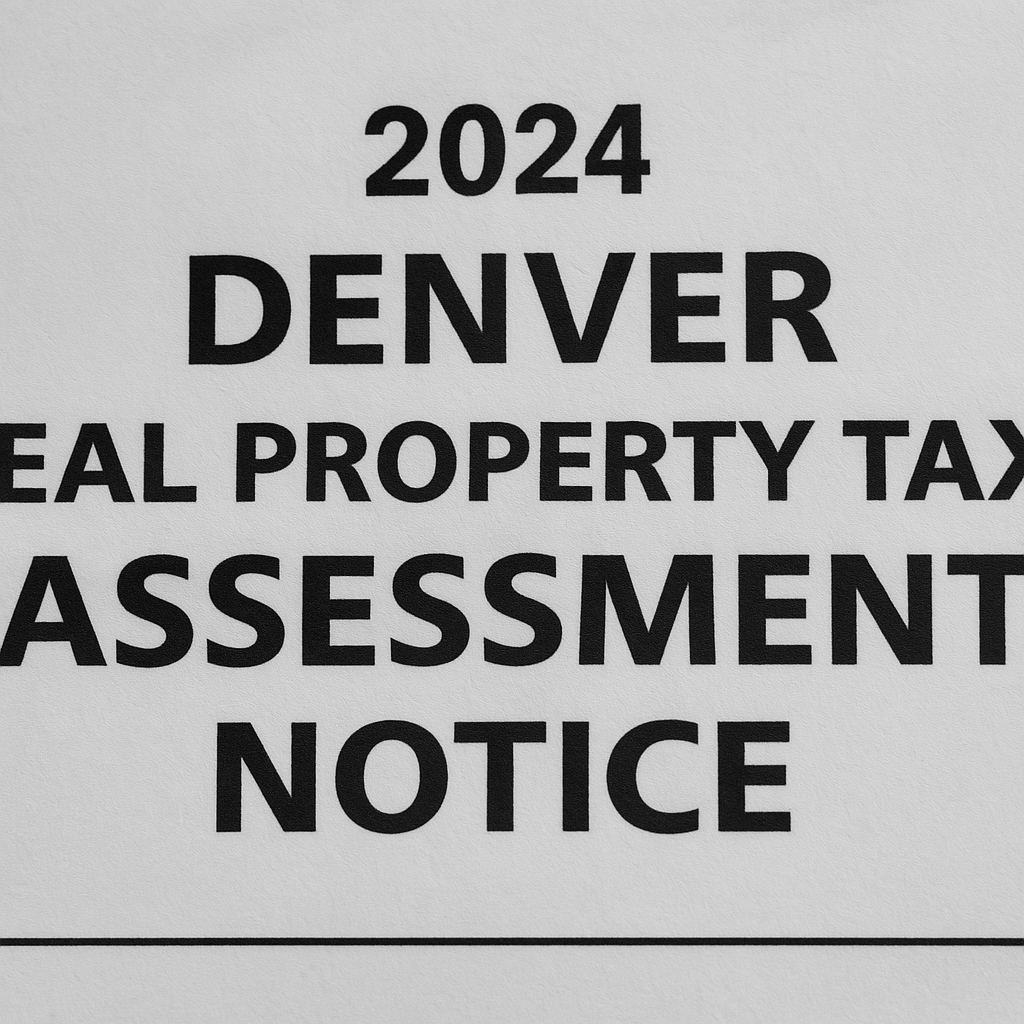Published April 9, 2025
How Property Taxes are calculated in Colorado, and why did they increase so much?

How Colorado Counties Calculate Your Property Tax—and Why Your Tax Bill Might Be Rising Faster Than You Expected
If you’re a Colorado homeowner—or thinking about becoming one—you’ve likely noticed that property tax bills have gotten a lot more attention in recent years. Between a hot housing market and some recent changes in Colorado property tax laws, homeowners across the Denver metro area are seeing some unexpected increases in their annual bills.
So how exactly do counties in Colorado calculate your property tax? And what’s changed since COVID that’s made tax bills spike for many homeowners?
Let’s break it down.
1. The Basics: How Property Taxes Work in Colorado
In Colorado, your annual property tax bill is based on this simple formula:
Assessed Value × Assessment Rate × Mill Levy = Property Tax Due
Here’s what each part means:
• Assessed Value: This is a percentage of your home’s actual (market) value. Residential property is assessed at a fixed percentage of market value—this rate has historically been around 6.95%, but it’s adjusted periodically by the state.
• Mill Levy: This is the local tax rate set by counties, cities, school districts, and special districts (like fire, water, or sanitation). One “mill” equals $1 in tax per $1,000 of assessed value.
So if your home’s market value is $600,000 and the assessment rate is 6.95%, your assessed value is $41,700. If your total mill levy is 80 mills, your tax bill would be about $3,336 annually.
2. Reassessment Happens Every Two Years in Colorado
One key feature of Colorado’s tax system is that home values are reassessed every two years. County assessors determine the actual value of your home using comparable sales from an 18-month period prior to June 30 of the year before the reassessment. For example:
• 2023 Reassessment used sales from January 1, 2021 to June 30, 2022.
That’s important because…
3. COVID-Era Appreciation Is Just Now Hitting Your Tax Bill
During the pandemic, Colorado home prices skyrocketed. Between 2020 and 2022, many neighborhoods in the Denver metro area saw 20–40% home value increases. While that might’ve felt like “paper equity” at the time, it’s now showing up in real numbers—your property tax bill.
The 2023 assessments reflect these values, meaning many homeowners opened their 2024 tax statements and were shocked to see 30–50% increases in their annual bills.
4. The Gallagher Amendment and Its Repeal
For years, Colorado’s Gallagher Amendment helped limit increases in residential property taxes by requiring a balance between commercial and residential tax burdens. But in 2020, voters repealed Gallagher, which had kept the assessment rate for homes artificially low.
As a result:
• The legislature can now adjust the residential assessment rate more freely.
• There’s less protection for homeowners when values surge, as they did post-COVID.
5. Recent Relief Measures for Homeowners
To help offset the steep increase in tax bills, Colorado lawmakers have passed a few temporary relief measures:
• Reduction in the assessment rate: For 2023 taxes (payable in 2024), the assessment rate for residential property was temporarily reduced from 6.95% to 6.765%.
• $15,000 actual value reduction: Homeowners also received a temporary $15,000 reduction in actual value before assessment—sort of like a one-time deduction.
These changes help, but for many, they don’t cancel out the large jump in home values.
6. What Homeowners Can Do
• Review your property value: You have the right to protest your assessed value if it seems inaccurate. Protests typically must be filed in May following reassessment notices.
• Look at your mill levy: Mill levies can vary significantly by area. New bond measures or district funding can increase your taxes even if your home value doesn’t change much.
• Plan ahead: If you escrow property taxes with your mortgage, your monthly payment may have increased. If not, be sure to budget for the due dates in April and June (or January and March if paying early).
Final Thoughts
Property tax is one of those hidden costs of homeownership that catches many people off guard—especially in rapidly appreciating markets like Denver. But with the right planning and guidance, it doesn’t have to derail your budget.
As a local real estate expert who’s helped hundreds of clients navigate these changes, I can help you:
• Understand your property’s assessed value
• Protest overvaluations (if needed)
• Factor future taxes into your home buying or selling strategy
Have questions about your tax bill—or what it means for your home’s future value?
Let’s connect. I’m here to help you make confident, informed decisions in today’s evolving real estate landscape.





